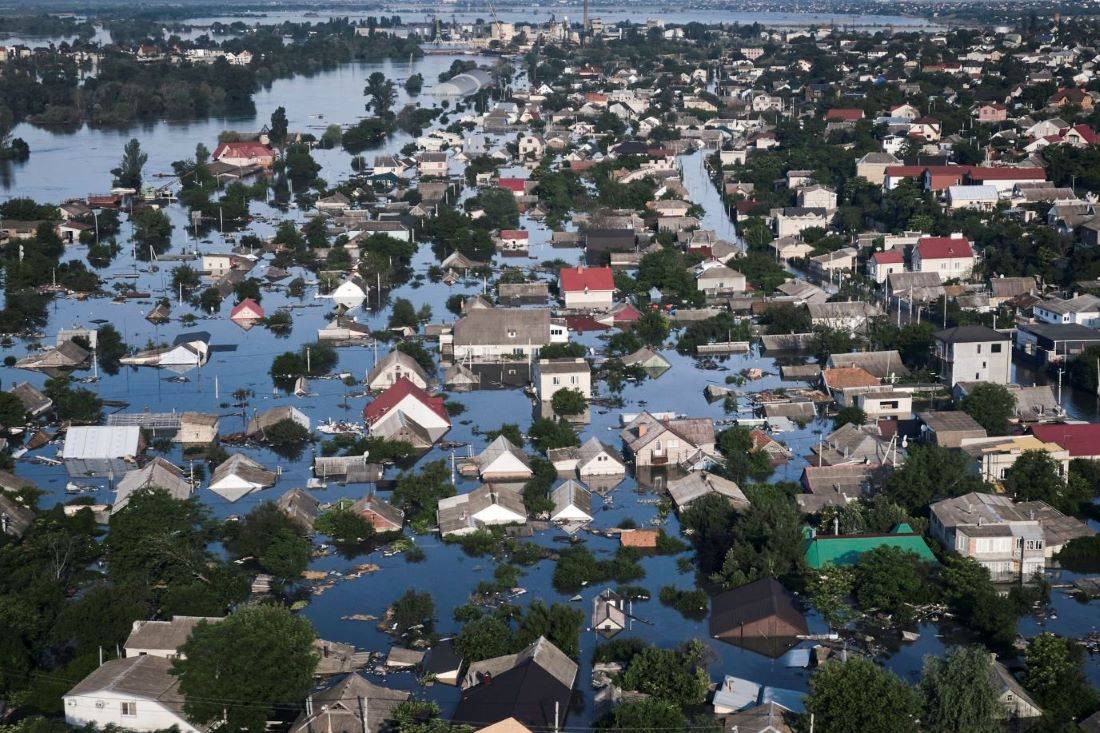
The recent destruction of the Kakhovka dam in southern Ukraine has caused widespread concern as tens of thousands of hectares of valuable agricultural land face the risk of flooding. The Ukrainian agriculture ministry warns that this catastrophe could potentially transform over 500,000 hectares of previously irrigated land into barren ‘deserts.’
As a major global producer and exporter of grain, Ukraine has accused Moscow of committing a war crime by allegedly blowing up the Soviet-era dam. However, the Kremlin has shifted blame onto Ukraine, intensifying the already tense relationship between the two nations.
The Ukrainian capital, Kyiv, estimates that approximately 42,000 people are at risk from the imminent flooding, which is expected to peak on Wednesday. President Volodymyr Zelenskiy stated that the dam's collapse has left hundreds of thousands of people without access to safe drinking water.
In an official statement issued late on Tuesday, the agriculture ministry highlighted the dire consequences of the dam's destruction. They warned that the agricultural fields in the southern regions of Ukraine could turn into deserts as a result of this disaster. Furthermore, the ministry stated that 31 irrigation systems in the regions of Dnipro, Kherson, and Zaporizhzhia would face severe water supply disruptions.
The affected irrigation systems played a crucial role in sustaining agricultural activities in the region. In 2021, prior to the Russian invasion, these systems provided irrigation for 584,000 hectares of farmland, resulting in a harvest of approximately 4 million tonnes of grains and oilseeds.
The agriculture ministry revealed that the destruction of the dam has left 94% of irrigation systems in Kherson, 74% in Zaporizhzhia, and 30% in Dnipro regions without water. Moreover, preliminary estimates suggest that around 10,000 hectares of agricultural land on the right bank of the Kherson region will be flooded. The ministry also expressed concerns about significantly larger areas on the left bank, which is currently under occupation.
While the exact amount of grain that could be lost due to the flooding remains uncertain, this devastating event poses a significant threat to Ukraine's agricultural sector. Ukrainian farm minister Mykola Solsky previously estimated a harvest of 18 million tonnes of winter grains this year, with winter wheat being the dominant crop.
The international community is closely watching the situation, and humanitarian aid efforts are being mobilized to support the affected regions. The Ukrainian government, in collaboration with international partners, is working diligently to mitigate the consequences of this ecological disaster and provide necessary assistance to affected communities.
















